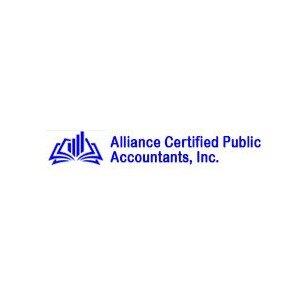
Best Agriculture Lawyers in Liberia
Share your needs with us, get contacted by law firms.
Free. Takes 2 min.
Or refine your search by selecting a city:
List of the best lawyers in Liberia

About Agriculture Law in Liberia:
Agriculture is a crucial sector in Liberia's economy, employing a large portion of the population and contributing significantly to the country's GDP. Agriculture law in Liberia encompasses a wide range of legal issues related to land use, property rights, environmental regulations, and commercial transactions in the agricultural industry.
Why You May Need a Lawyer:
There are several situations where you may require legal assistance in the field of agriculture in Liberia. Some common reasons include disputes over land ownership or use, contract disputes with suppliers or buyers, compliance with environmental regulations, and seeking legal advice on starting or expanding an agricultural business.
Local Laws Overview:
Local laws in Liberia that are particularly relevant to agriculture include the Land Rights Act, the Environmental Protection Agency Act, and the Agriculture Transformation Agenda. These laws govern issues such as land tenure, environmental protection, agricultural development, and food security in Liberia.
Frequently Asked Questions:
1. Can foreigners own land for agricultural purposes in Liberia?
Yes, foreigners can own land for agricultural purposes in Liberia through long-term leases or partnerships with local landowners.
2. What are the environmental regulations that agricultural businesses in Liberia must comply with?
Agricultural businesses in Liberia must comply with the Environmental Protection Agency Act, which regulates the environmental impact of agricultural activities.
3. How can I resolve a dispute over land ownership or use in Liberia?
You may need to seek legal assistance to resolve disputes over land ownership or use in Liberia through the court system or alternative dispute resolution mechanisms.
4. What are the key provisions of the Land Rights Act that affect agriculture in Liberia?
The Land Rights Act in Liberia recognizes and protects customary land rights, which are crucial for smallholder farmers and rural communities engaged in agriculture.
5. How can I start an agricultural business in Liberia?
Starting an agricultural business in Liberia involves registering your business with the relevant authorities, obtaining any necessary permits or licenses, and complying with local regulations.
6. Are there any government programs or incentives available for agricultural development in Liberia?
Yes, the Liberian government has programs and incentives to support agricultural development, including subsidies, training programs, and access to credit.
7. How can I protect my intellectual property rights in the agricultural sector in Liberia?
You can protect your intellectual property rights in Liberia by registering patents, trademarks, or copyrights for your agricultural innovations or products.
8. What are the regulations regarding agricultural exports from Liberia?
Agricultural exports from Liberia are subject to regulations from the Ministry of Agriculture and the Ministry of Commerce and Industry to ensure quality, safety, and compliance with international standards.
9. How can I ensure that my agricultural business is compliant with labor laws in Liberia?
You can ensure compliance with labor laws in Liberia by following the Labor Practices Law, which governs issues such as wages, working conditions, and employee rights in the agricultural sector.
10. What should I do if I encounter fraud or corruption in the agricultural industry in Liberia?
If you encounter fraud or corruption in the agricultural industry in Liberia, you should report it to the appropriate authorities, such as the Liberia Anti-Corruption Commission or the Ministry of Justice.
Additional Resources:
For legal advice and assistance in the field of agriculture in Liberia, you can contact the Liberian Bar Association or seek guidance from the Ministry of Agriculture or the Environmental Protection Agency.
Next Steps:
If you require legal assistance in agriculture in Liberia, consider consulting with a qualified lawyer who specializes in agricultural law to help you navigate the legal complexities and protect your interests in agricultural activities. Be prepared to provide relevant documentation and information to support your case, and consider exploring alternative dispute resolution options before pursuing litigation.
Lawzana helps you find the best lawyers and law firms in Liberia through a curated and pre-screened list of qualified legal professionals. Our platform offers rankings and detailed profiles of attorneys and law firms, allowing you to compare based on practice areas, including Agriculture, experience, and client feedback.
Each profile includes a description of the firm's areas of practice, client reviews, team members and partners, year of establishment, spoken languages, office locations, contact information, social media presence, and any published articles or resources. Most firms on our platform speak English and are experienced in both local and international legal matters.
Get a quote from top-rated law firms in Liberia — quickly, securely, and without unnecessary hassle.
Disclaimer:
The information provided on this page is for general informational purposes only and does not constitute legal advice. While we strive to ensure the accuracy and relevance of the content, legal information may change over time, and interpretations of the law can vary. You should always consult with a qualified legal professional for advice specific to your situation.
We disclaim all liability for actions taken or not taken based on the content of this page. If you believe any information is incorrect or outdated, please contact us, and we will review and update it where appropriate.
Browse agriculture law firms by city in Liberia
Refine your search by selecting a city.







